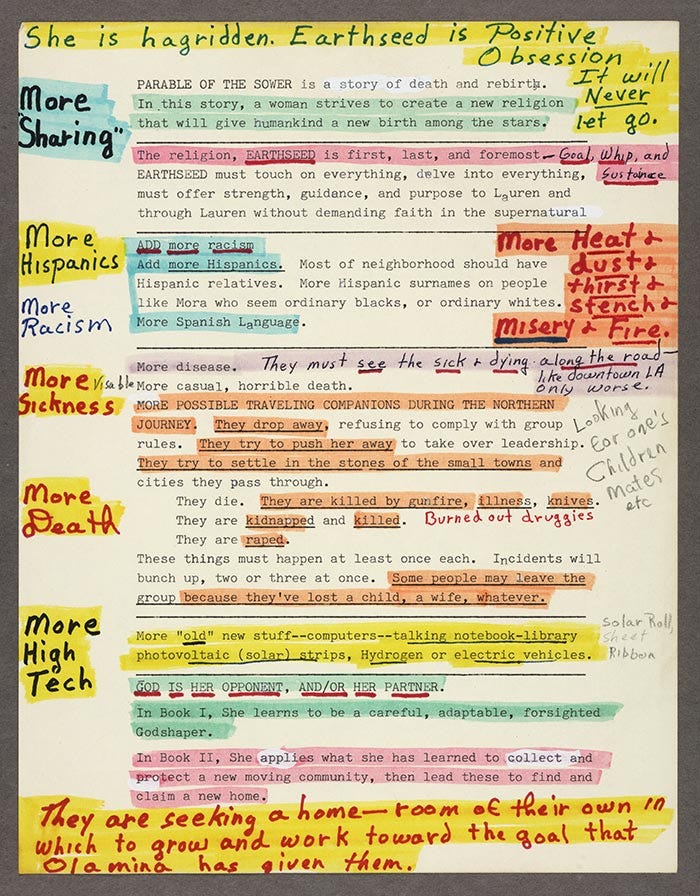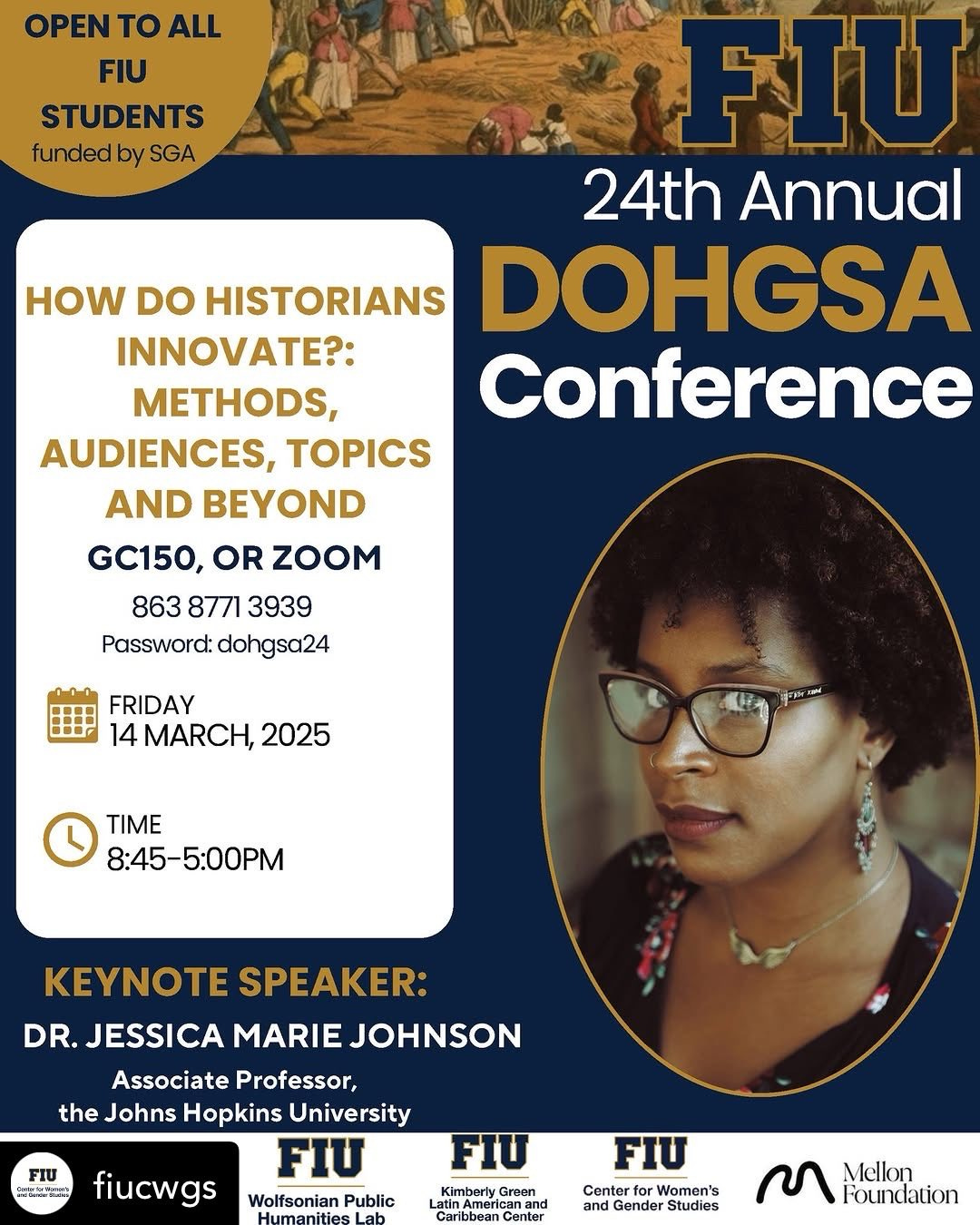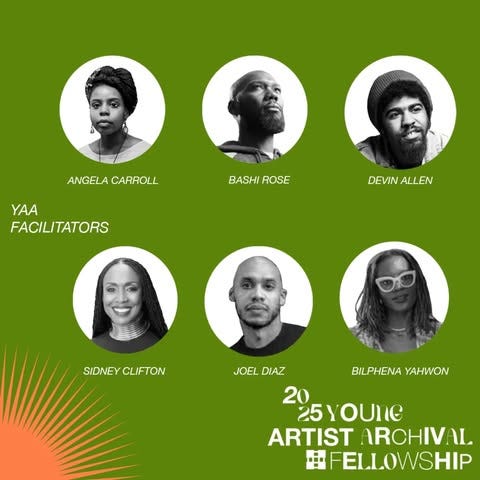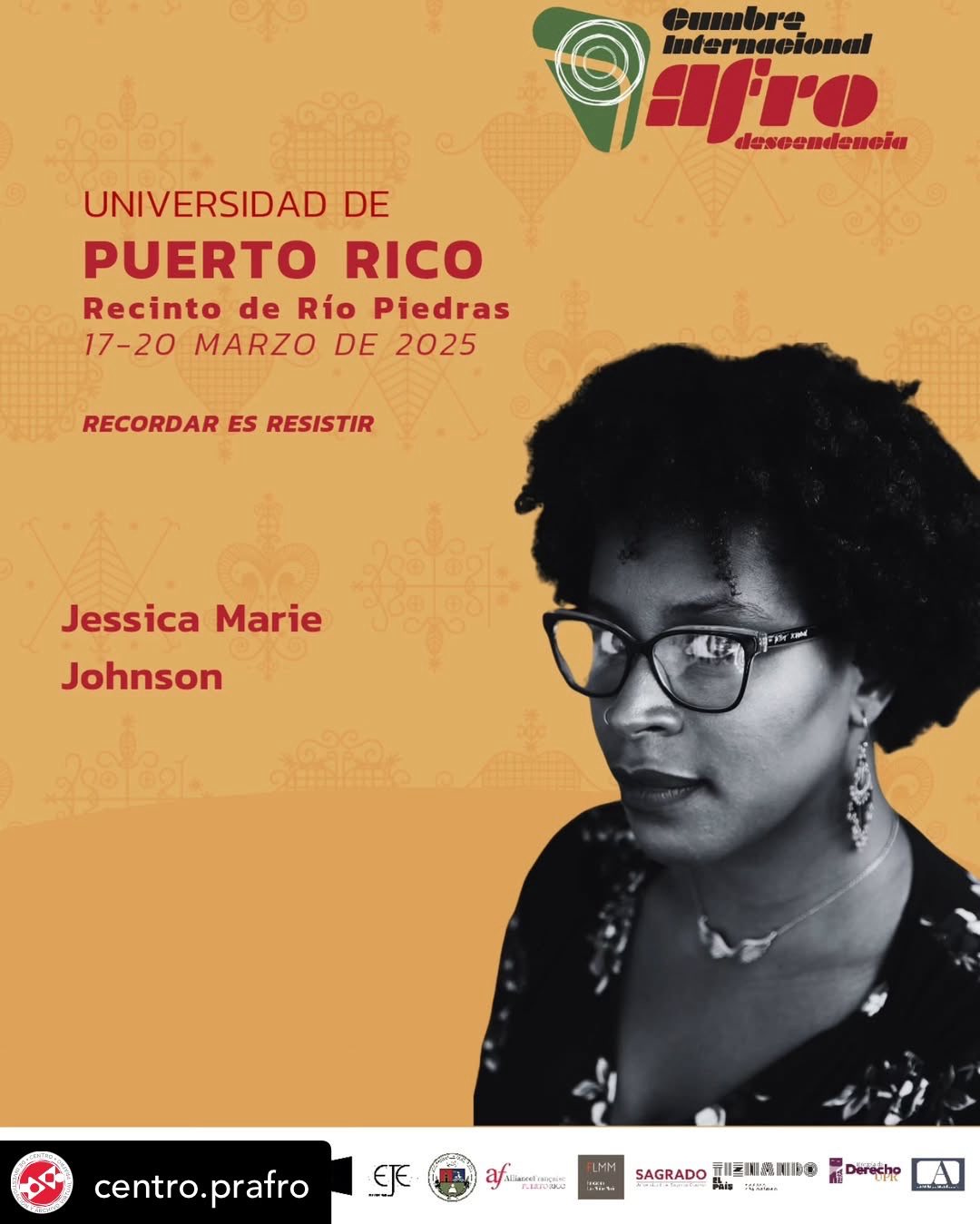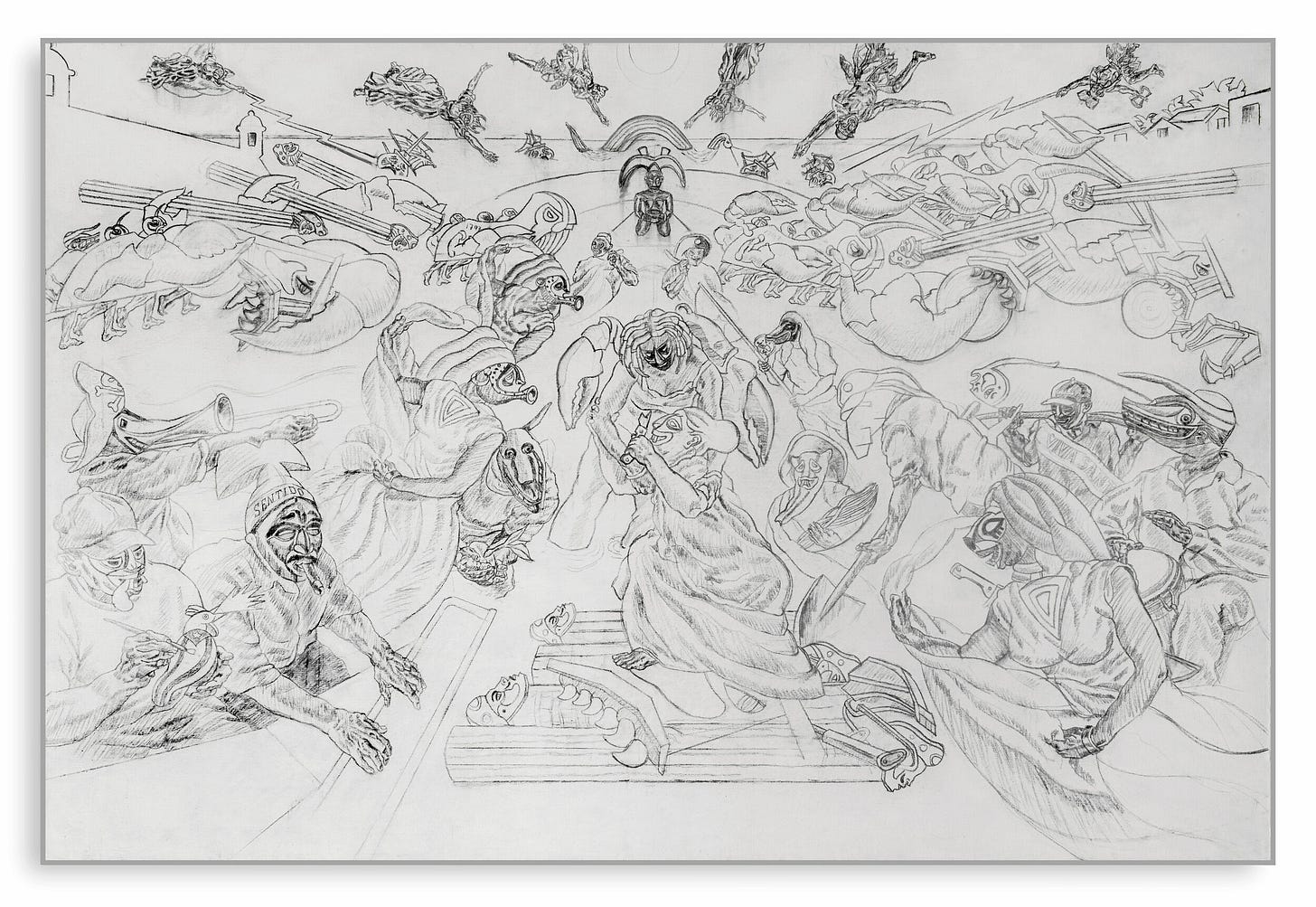Updates
This week, plenty happening in my world. Tonight is the opening of Diasporic Collage at Hunter College. Come out and hang out with the cool kids of the Diaspora Solidarities Lab.
This exhibit is my boyfriend, Dr. Yomaira Figueroa’s baby. Congratulations to her and to the Open Boat Lab on pulling off this tremendous feat.
Tomorrow, I’m in Florida delivering the keynote address at FIU’s graduate student symposium. I’ll be discussing how and why we do history (and the digital) against enclosure and why it matters now.
On Saturday, I’ll be hanging out with the cool kids of the Youth Arts Archival Fellowship. The theme this year is Rituals of Rememberance. My ritual of remembering is Harriet Tubman by way of Edda Fields-Black PHENOMENAL book, COMBEE: Harriet Tubman, the Combahee River Raid, and Black Freedom during the Civil War (2024).
On Tuesday, I’ll be at the UPR-RP for Cumbre Afro, the annual conference organized by PRAFRO (dir. Mayra Santos Febres). Figueroa and I will be describing our work with the Diaspora Solidarities Lab and plans for the next phase of the work.
These days, it is an honor and a gift to be able to do the work we do.
Thank you everyone who reaches out to me to hear more about Wicked Flesh, about LifexCode, and about doing histories of Black life, in general. I do not take it for granted.
Our “Provocations for Generative AI” preprint is live. If you haven’t checked it out yet, you can find it here. Computational Humanities is also available for purchase. I also have a sweet, short essay in shana griffin and Tia-Simone Gardner’s book created from their exhibition at the Maritime Museum in Minnesota, A Nation Takes Place.
More soon, more soon, more soon come. If nothing else, the words are flowing. When I’m not out and about talking about work, I am frantically writing new material.
What a time.
Reads and a video below.
Reads
Laura Estill et al., “The Circus We Deserve? A Front Row Look at the Organization of the Annual Academic Conference for the Digital Humanities,” Digital Humanities Quarterly 16, no. 4 (2022), https://www.digitalhumanities.org/dhq/vol/16/4/000643/000643.html.
“Hopkins Programs Forced to Close as Trump Administration Ends USAID Grants,” The Johns Hopkins News-Letter, accessed March 13, 2025, https://www.jhunewsletter.com/article/2025/03/hopkins-programs-forced-to-close-as-trump-administration-ends-usaid-grants.
Ethan Watrall, Matthew K. Gold, and Lauren F. Klein, “Archaeology, the Digital Humanities, and the ‘Big Tent.,’” Debates in the Digital Humanities 8 (2016): 2018.
Lisa Herndon, “A Look at Arturo Schomburg’s Essay, ‘The Negro Digs Up His Past,’ 100 Years Later | The New York Public Library,” accessed March 13, 2025, https://www.nypl.org/blog/2025/03/04/look-arturo-schomburgs-essay-negro-digs-his-past-100-years-later?fbclid=PAZXh0bgNhZW0CMTEAAaa7IvHBABeovGILOxJickzkdyjeXwjNrdESXETWBndWkeIXUfdWeE3Y45Q_aem_sGnbtTagJWyNv5F5P40oDA
Amardeep Singh, “African American Poetry: Arthur A. Schomburg (Arturo Schomburg), ‘The Negro Digs Up His Past’ (1925),” African American Poetry: A Digital Anthology, accessed March 13, 2025, https://scalar.lehigh.edu/african-american-poetry-a-digital-anthology/arthur-a-schomburg-arturo-schomburg-the-negro-digs-up-his-past-1925.
Alexis Lothian and Amanda Phillips, “Can Digital Humanities Mean Transformative Critique?,” Journal of E-Media Studies 3, no. 1 (2013), https://doi.org/10.1349/PS1.1938-6060.A.425.
“SIUE Black Studies Blog: Representing Race: Silence in the Digital Humanities,” January 26, 2013, https://web.archive.org/web/20130126213317/http://www.siueblackstudies.com/2013/01/representing-race-silence-in-digital.html.
Moya Z. Bailey, “All the Digital Humanists Are White, All the Nerds Are Men, but Some of Us Are Brave,” Journal of Digital Humanities 1 (2011), http://journalofdigitalhumanities.org/1-1/all-the-digital-humanists-are-white-all-the-nerds-are-men-but-some-of-us-are-brave-by-moya-z-bailey/.
“Danger Signs for the Academic Job Market in Humanities? | American Academy of Arts and Sciences,” March 3, 2015, https://www.amacad.org/news/danger-signs-academic-job-market-humanities.
Allen Mikaelian, “The 2013 Jobs Report – AHA,” https://www.historians.org/, January 1, 2014, https://www.historians.org/perspectives-article/the-2013-jobs-report-number-of-aha-ads-dip-new-experiment-offers-expanded-view-january-2014/.
“Radio Imagination About,” Clockshop, accessed March 13, 2025, https://clockshop.org/project/radio-imagination/.
Jayna Brown, Black Utopias: Speculative Life and the Music of Other Worlds (Duke University Press, 2021).
Ayana Jamieson, “‘Harvest of Survivors’: 30 Years After Octavia E. Butler’s ‘Parable of the Sower’ | Sierra Club,” Sierra: The Magazine of the Sierra Club, February 22, 2023, https://www.sierraclub.org/sierra/harvest-survivors-30-years-after-octavia-e-butler-s-parable-sower.
Susana M. Morris, “Black Girls Are from the Future: Afrofuturist Feminism in Octavia E. Butler’s Fledgling,” WSQ: Women’s Studies Quarterly 40, no. 3 (2012): 146–66.
“CARIBE FRACTAL / FRACTAL CARIBBEAN | Residential College in the Arts and Humanities | Michigan State University,” accessed March 13, 2025, https://rcah.msu.edu/uniquely-rcah/lookout/Ballester-2020-Exhibit.html.
Federico Cintrón-Moscoso and Vanessa Díaz, “Photo Essay: The Power of Popular Protest: El Verano Boricua,” Latin American Perspectives 47, no. 3 (May 1, 2020): 13–17, https://doi.org/10.1177/0094582X20916217.
Joel Cintrón Arbasetti, “La Generación Del ‘Yo No Me Dejo’ Exige La Renuncia de Ricardo Rosselló,” Centro de Periodismo Investigativo, July 21, 2019, https://periodismoinvestigativo.com/2019/07/la-generacion-del-yo-no-me-dejo-exige-la-renuncia-de-ricardo-rossello/.
PR Voices Study Guide, Privatized Resilience https://drive.google.com/file/d/1H28fGj6AHYGLe4FBM-V2pRFLuIcO3jz5/view
“Collaboration: El Apagón Microsyllabus,” Puerto Rico Syllabus, July 16, 2023, https://puertoricosyllabus.com/syllabus/collaboration-el-apagon-microsyllabus/.
Brittney Cooper, “How Sarah Got Her Groove Back, or Notes Toward a Black Feminist Theology of Pleasure,” Black Theology 16, no. 3 (September 2, 2018): 195–206, https://doi.org/10.1080/14769948.2018.1492299.
“Horny and Holy: Saved Women Seeking Sexual Pleasure,” December 15, 2017, https://doi.org/10.1215/9780822372240-007.
Lawrence Aje and Nicolas Gachon, eds., Traces and Memories of Slavery in the Atlantic World (New York: Routledge, 2019), https://doi.org/10.4324/9780429316807.
Daryle Williams, “Digital Approaches to the History of the Atlantic Slave Trade,” Oxford Research Encyclopedia of African History, November 20, 2018, https://doi.org/10.1093/acrefore/9780190277734.013.121.
Janell Hobson, ed., The Routledge Companion to Black Women’s Cultural Histories (London: Routledge, 2021), https://doi.org/10.4324/9780429243578.
Gwendolyn Midlo Hall and Pero G. Dagbovie, Haunted by Slavery: A Memoir of a Southern White Woman in the Freedom Struggle (La Vergne, UNITED STATES: Haymarket Books, 2021), http://ebookcentral.proquest.com/lib/jhu/detail.action?docID=6184203.
Daina Ramey Berry, “Berry Slave Value Database” (Inter-university Consortium for Political and Social Research (ICPSR), October 30, 2017), https://doi.org/10.3886/E101113V1.
Walter Hawthorne, “New Data Historians and the Study of Slavery in Vast Early America,” The William and Mary Quarterly 81, no. 2 (2024): 309–18.
“How Antam Gonçalvez Brought Back the First Captives (CHAPTER XII) - The Chronicle of the Discovery and Conquest of Guinea,” accessed March 13, 2025, https://www-cambridge-org.proxy1.library.jhu.edu/core/books/chronicle-of-the-discovery-and-conquest-of-guinea/how-antam-goncalvez-brought-back-the-first-captives/BD90D05BF9CCFF86517457B71F569197.
Watch
Privatized Resilience: Puerto Rican Voices, 2022,
.




